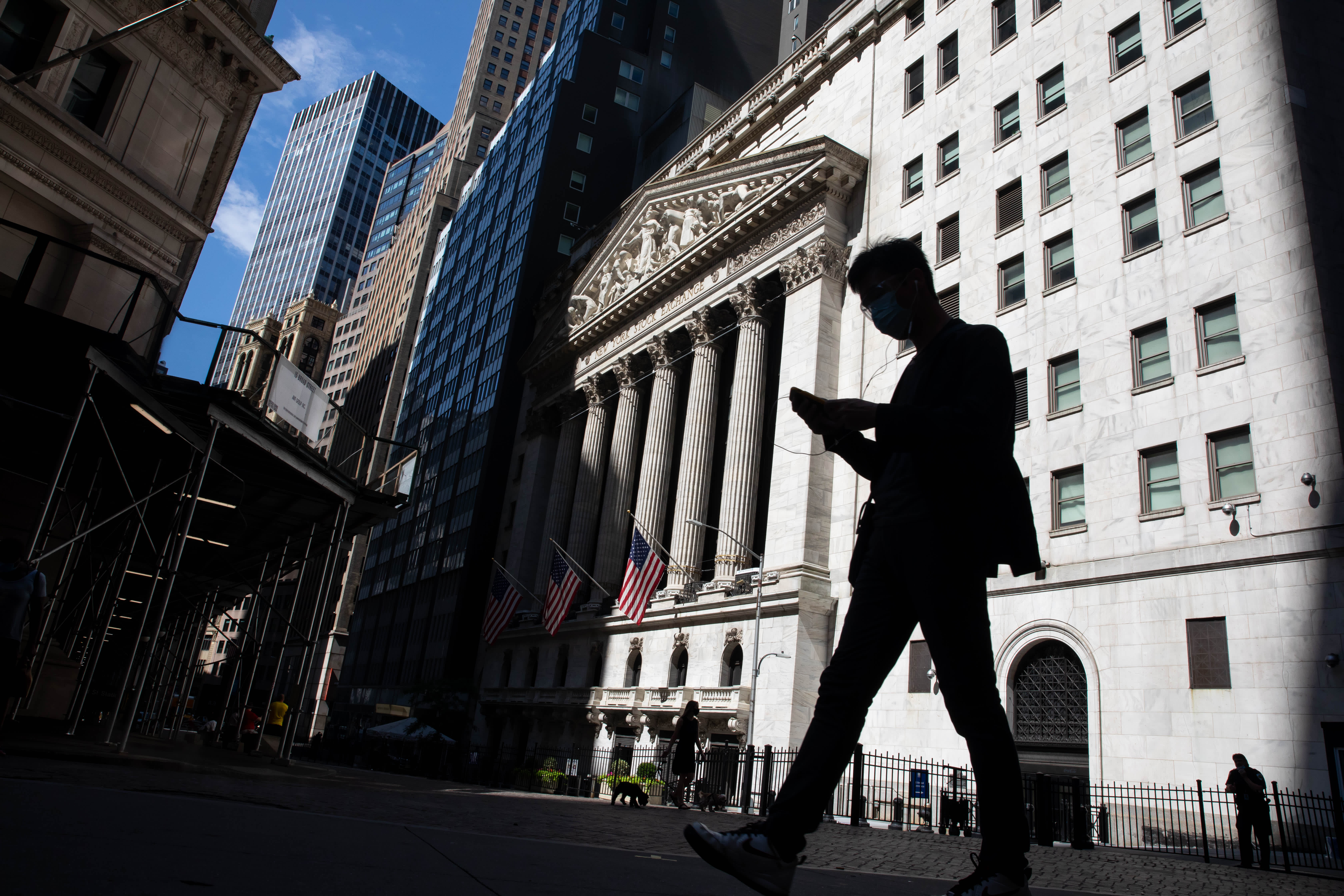Stocks eke out small gains after wild session, Apple leads tech higher

Stocks rose slightly on Thursday as tech shares recovered some of their recent losses while traders weighed the latest batch of economic data.
The Dow Jones Industrial Average closed 52.31 points higher, or 0.2%, at 26,815.44. At its session low, the Dow was down 226 points. The 30-stock Dow was also up more than 300 points earlier in the day. The S&P 500 climbed 0.3% to 3,246.59 and the Nasdaq Composite advanced 0.4% to 10,672.27.
Apple and Microsoft shares rose 1% and 1.3%, respectively, to lead tech higher. Alphabet shares gained nearly 1% and Amazon advanced 0.7%. Netflix was up 0.5% and Facebook advanced 0.2%.
Market sentiment was kept in check, however, as first-time claims for state unemployment benefits totaled 870,000 for the week ended Sept. 19. That's more than a Dow Jones estimate of 850,000. Continuing claims — which include those who have received unemployment benefits for at least two straight weeks — declined slightly but were still higher than forecast.
"Claims, arguable the most important high frequency data point currently, missed expectations and moved up week-over-week," Evercore ISI strategist Dennis DeBusschere, said in a note Thursday. "With the Fed diminishing its own credibility by continually emphasizing the ineffectiveness of monetary policy and begging for fiscal support, weaker data will have a big impact on risk assets. Especially if the fiscal cliff starts to bite, which some indicators suggests might be starting."
However, the Census Bureau reported that new home sales in the U.S. totaled just over 1 million in August. Economists polled by Dow Jones expected a gain of 898,000.
"People are getting concerned about what kind of economic recovery we're going to get in the next few months," said Megan Horneman, director of portfolio strategy at Verdence Capital Advisors. "Some parts of the economy are doing well and some are slowing down a bit."
Wall Street is grappling with a lack of new fiscal stimulus, which several economists and the Federal Reserve argue is needed for the economic recovery to continue.
This lack of a stimulus bill led Goldman Sachs to slash its fourth-quarter GDP forecast to 3% from 6% on an annualized basis.
"We think it is now clear that Congress will not attach additional fiscal stimulus to the continuing resolution," Jan Hatzius, chief economist at Goldman Sachs, wrote in a note. "This implies that after a final round of extra unemployment benefits that is currently being disbursed, any further fiscal support will likely have to wait until 2021."
CNBC reported, citing a source familiar with the matter, that Democrats are putting together a scaled-back aid package and plan to vote on it next week. The source said the bill would cost $2.4 trillion, which is well above what Republicans and the White House said they would agree to.
Traders have had a tough month in September, with the major market benchmarks falling sharply as tech shares lose steam.
So far in September the S&P 500 has declined 7.3%, while the Dow has shed 5.7%. The Nasdaq Composite has been the relative underperformer, registering a loss of 9.4% as investors rotate out of Big Tech. Facebook, Amazon, Apple, Netflix, Alphabet and Microsoft are all down at least 9.9% in September.
"Psychology around [tech] shifted and it's no longer the stalwart source of support it once was. Meanwhile, investors still aren't comfortable enough with the cyclical/value stocks to even begin to offset the ongoing tech weakness," wrote Adam Crisafulli of Vital Knowledge.
— CNBC's Yun Li contributed reporting
Subscribe to CNBC PRO for exclusive insights and analysis, and live business day programming from around the world.
tinyurlis.gdv.gdv.htclck.ruulvis.netshrtco.de
